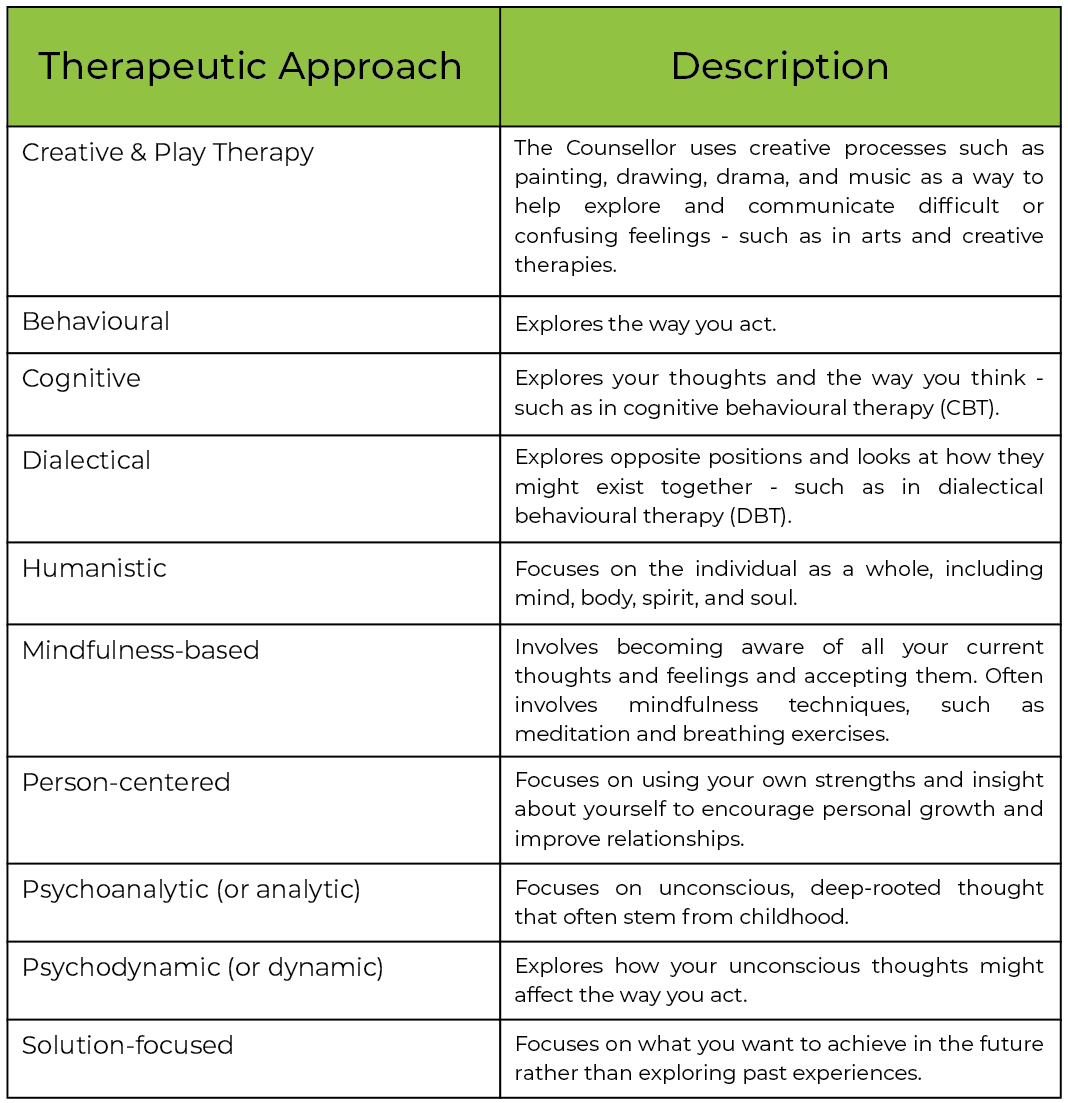Counselling
The Miracle Foundation SCIO provide one to one and group Counselling support to Children and Young People within the organisation’s core premises and as part of contracted work with primary and secondary schools. One-to-one sessions are typically provided via one 50-minute session each week over a 10-week period. Group sessions are provided over the same time period but with an increased session time of 90-minutes.
Counselling is a talking therapy that involves a trained therapist listening to you and helping you find ways to deal with emotional issues. Sometimes the term "counselling" is used to refer to talking therapies in general, but counselling is also a type of therapy in its own right.
Therapy provides a safe and confidential space for you to talk to a trained professional about your issues and concerns. Your therapist will help you explore your thoughts, feelings, and behaviours so you can develop a better understanding of yourself and of others. A counsellor will not give you their opinions or advice or prescribe medication. They will help you find your own solutions – whether that’s making effective changes in your life or finding ways of coping with your problems.

During a session, your therapist may take you through specific exercises designed to help with your problem, or you might have more general discussions about how you're feeling. Your therapist will be impartial but understanding. They will listen to you without judgment and help you explore your thoughts and emotions. They may offer information, but they won’t tell you what you should think or do.
What you talk about will vary depend on what you want help with and the therapist’s approach. It could include:
- your relationships
- your childhood
- your feelings, emotions, or thoughts
- your behaviour
- past and present life events
- situations you find difficult
Implementing a target and person-centred approach within the organisation’s Counselling and Art Therapy services, the Miracle Foundation Counsellor’s utilise a wide range of therapeutic approaches depending on the needs of the Child or Young Person. Many therapists are trained in several different styles and will tailor their approach for you. In this case they might also use words like ‘eclectic’, 'blended' or ‘integrative’ when they describe how they work. The table explains some of the approaches used by our current Counsellors:

The Miracle Foundation Scio
51 Hamilton Road
Motherwell
ML1 3DD
The Miracle Foundation Scio
51 Hamilton Road
Motherwell
ML1 3DD
Registered in Scotland as a charity no. SCO49840
All Rights Reserved | The Miracle Foundation Scio


